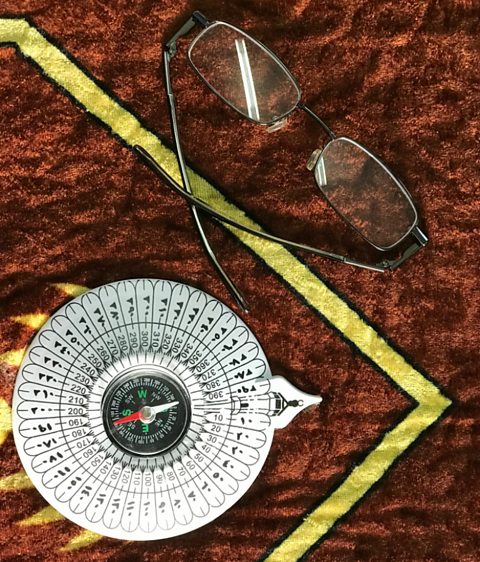Shahadah
The ShahadahA declaration of faith that consists of the statement is the declaration of faith or the key statement of belief of Muslims. Muslims are expected to know the declaration of faith.
The Shahadah is usually said a few times each day. It is said at birth as the first words a baby hears, and Muslims aim for these to be the last words they say before death. The Shahadah forms the foundation of the other four pillars.
A non-Muslim can convertWhen someone changes their belief from one religion to another. to Islam by saying the Shahadah and meaning it sincerely.
Salah
The Salah are the five daily prayers, which can be done anywhere. Each of the prayers is performed at a specific time of day:
- Fajr - just before sunrise
- Zuhr - just after midday
- Asr - late afternoon
- Maghrib - just after sunset
- Isha - between sunset and midnight
At the mosque, men and women pray in separate rooms while performing a series of movements in a sequence. This involves bowing and kneeling as well as prostrateIn Islam, kneeling with forehead, hands, knees and feet touching the floor. and reciting praises to God.
Salah encourages self-discipline and keeps Muslims in close contact with Allah. It is a sign of solidarity with all other Muslims and it shows that everyone is equal in their worship of God.
Preparing for prayer

Before praying, Muslims prepare by performing an important set of actions so that all of their focus can be on God:
- They perform a washing ritual WuduRitual washing before salah (prayer). so that they are spiritually clean. Mosques have washrooms where this washing can be performed. The ritual involves washing faces, hands and feet under running water. If water is not available, sand or dust can be used. This is seen as a sign of spiritual washing.
- They face the city of Makkah (Mecca)City in Saudi Arabia. Birthplace of the Prophet Muhammad.. In a mosque, the mihrabNiche in the wall of a mosque at the point nearest to Makkah that the congregation faces to pray. marks the direction of prayer. If a person is praying outside a mosque, a compass on a prayer mat can be used.
- NiyyahThe statement of intention made by Muslims beginning compulsory prayer.Ā - a conscious intention to pray. Prayer starts with a declaration of niyyah, showing that the worshipper is making an intentional effort to set time aside to communicate with God.
Differences between Sunni and Shiāa practices
SunniMuslims who believe in the successorship of Abu Bakr, Umar, Uthman and Ali as leaders of the Muslim community after the Prophet Muhammad. Muslims only combine the five daily prayers if they have a good reason to, for example if they are travelling.
Shiāa MuslimThe word 'Shi'a' comes from a phrase meaning 'followers of Ali'. Shi'a Muslims believe that Ali succeeded the Prophet Muhammad. Muslims have more freedom to combine certain prayers, such as the midday and afternoon prayers. Therefore they may only pray three times a day.
Shiāa Muslims also often use natural elements when praying. For example, some place a piece of clay at the spot where their head will rest.
The movements that Sunni and Shiāa Muslims make during prayer can also differ.
Jummah
Jummah refers to communal prayers held on a Friday just after noon at a mosque. Getting together is meant to develop the feeling of unity among the Muslim community.
The imamA Muslim religious figure who leads the communal prayer and is also a leader in the local community and mosque. In Shi'a Islam, the title is given to a line of descendants of Muhammad (twelve in all) who are believed to be exemplary human beings. gives two sermons and a series of rak'ahA unit of bodily actions and recitations from the Qur'an said during prayer. Each prayer consists of various numbers of °ł²¹°ģāa³ós. is performed. Men are obliged to go to Jummah unless they are ill or too old to attend. Women do not have to go to Jummah and instead may choose to pray at home.
Question
If no water is available, what can Muslims use to perform ritual washing before they pray?
Sand or dust.